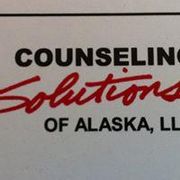
After leaving active duty, many veterans have a hard time adjusting to civilian life. From having to get a new job to re-establishing their role as a father, mother, or sibling, the process can be challenging. Returning home can be even more difficult if they’re dealing with post-traumatic stress disorder (PTSD). Fortunately, by understanding how this condition works, what causes it, and the treatment options, many veterans learn to thrive. Whether you recently returned from active duty or have a family member who did, here’s what you need to know about PTSD.
What Is Post-Traumatic Stress Disorder?
PTSD is a condition that’s often experienced by people who witness a traumatic event, such as a terrorist attack or combat. Some common symptoms include obsessive thoughts, flashbacks, intrusive negative feelings, angry outbursts, repeated dreams, and self-destructive behavior.
What Causes PTSD in Veterans?
 Military service puts soldiers at a higher risk of developing PTSD, as they commonly witness or experience traumatic events, such as bombings, living in harsh conditions, attacks, killings, and shelling. Additionally, it’s common for women to be sexually assaulted while serving, unfortunately. Keep in mind that the longer a soldier serves, the higher their risk of PTSD.
Military service puts soldiers at a higher risk of developing PTSD, as they commonly witness or experience traumatic events, such as bombings, living in harsh conditions, attacks, killings, and shelling. Additionally, it’s common for women to be sexually assaulted while serving, unfortunately. Keep in mind that the longer a soldier serves, the higher their risk of PTSD.
How Is PTSD Treated?
While there are many treatment options for PTSD, counseling and medication are particularly effective. Therapy allows you to understand and analyze your thoughts and reactions while learning techniques to decrease negative feelings and cope with stress. Medication, particularly Selective serotonin reuptake inhibitors (SSRIs), helps veterans to reduce anxiety, irritability, and depression, as well as improve their sleep patterns.
Whether you’re a veteran with PTSD or have a family member with this condition, contact Counseling Solutions of Alaska. With locations in Anchorage and Eagle River, their therapists help veterans thrive after their military service by providing professional counseling and medication management services. They begin with an initial consultation and then develop a personalized plan to meet their clients’ needs. Call (907) 644-8044 for their Anchorage location and (907) 689-3450 to reach their Eagle River office. Visit them online to learn more about their post-traumatic stress disorder counseling services.
About the Business
Have a question? Ask the experts!
Send your question

